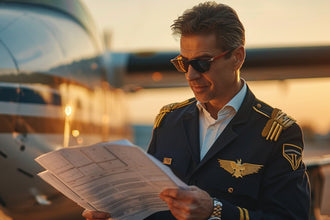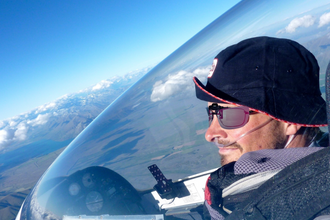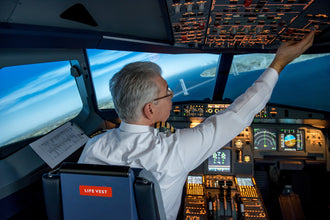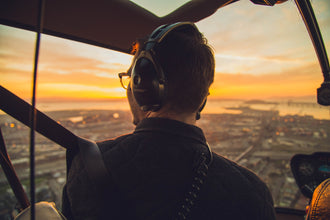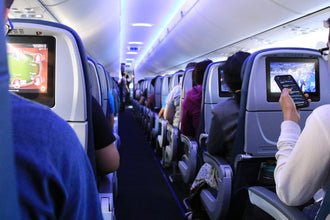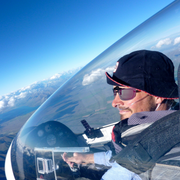
In the demanding world of aviation, knowing How to Stay Physically and Mentally Fit for Flying is essential for every pilot. Ensuring both your body and mind are in peak condition directly impacts your ability to perform safely and efficiently in the cockpit. This article explores essential strategies to help pilots maintain the physical and mental fitness required for safe and effective flight operations.
Physical Fitness: The Foundation of Safe Flying
1. Prioritize Regular Exercise
Maintaining physical fitness is crucial for pilots, as it directly impacts stamina, strength, and overall health. Regular exercise helps improve cardiovascular health, boosts energy levels, and enhances endurance—factors that are vital for handling long hours in the cockpit. Aim for a balanced exercise routine that includes aerobic activities (like running or cycling), strength training, and flexibility exercises.
Tip: Incorporate at least 30 minutes of moderate exercise most days of the week to maintain a healthy level of physical fitness.
2. Eat a Balanced Diet
A nutritious diet is essential for sustaining energy and maintaining concentration during flights. Pilots should focus on a diet rich in fruits, vegetables, whole grains, lean proteins, and healthy fats. Avoid heavy, greasy foods before flying, as they can cause discomfort and sluggishness during the flight.
Tip: Stay hydrated by drinking plenty of water throughout the day, especially before and during flights, to prevent dehydration, which can impair cognitive function and reaction times.
3. Manage Sleep and Rest
Quality sleep is crucial for cognitive function, alertness, and overall well-being. Pilots often face irregular schedules and time zone changes, making it essential to prioritize sleep whenever possible. Aim for 7-9 hours of sleep per night and practice good sleep hygiene, such as maintaining a consistent sleep schedule, creating a restful environment, and avoiding caffeine or heavy meals before bedtime.
Tip: Use naps strategically to manage fatigue, especially during long-haul flights or in between shifts.
4. Regular Medical Check-Ups
Regular medical check-ups are vital for detecting any health issues that could affect a pilot’s ability to fly safely. Most aviation authorities require periodic medical examinations, but pilots should also take the initiative to monitor their health regularly. Conditions like high blood pressure, diabetes, or sleep apnea can impact a pilot’s performance and must be managed effectively.
Tip: Keep track of your medical history and stay proactive about addressing any health concerns with your healthcare provider.
Mental Fitness: Staying Sharp in the Cockpit
5. Stress Management Techniques
Flying can be stressful, especially in high-pressure situations or during long flights. Developing effective stress management techniques is essential for maintaining mental fitness. Techniques such as deep breathing, meditation, and mindfulness can help pilots stay calm and focused during challenging moments.
Tip: Practice stress-relief techniques regularly, both on the ground and in-flight, to build resilience against stress.
6. Continuous Learning and Skill Development
Staying mentally fit for flying involves continuous learning and skill development. Engaging in regular training, attending workshops, and staying updated with the latest aviation practices and technologies can keep your mind sharp and prepared for any situation. This ongoing education helps build confidence and ensures that your skills remain current.
Tip: Participate in flight simulator training, read up on aviation advancements, and seek opportunities for professional development.
7. Stay Connected with Peers
Maintaining a strong support network with fellow pilots and aviation professionals can provide valuable emotional and mental support. Sharing experiences, discussing challenges, and seeking advice from others who understand the demands of the job can help reduce feelings of isolation and stress.
Tip: Join pilot associations, attend industry events, and engage in online forums to build a network of peers.
8. Mental Health Awareness
Mental health is just as important as physical health in ensuring a pilot’s readiness to fly. Pilots should be aware of signs of mental fatigue, anxiety, or depression and seek help when needed. Mental health issues can impact decision-making, concentration, and overall performance, so it’s crucial to address them promptly.
Tip: Don’t hesitate to reach out to a mental health professional if you’re feeling overwhelmed, stressed, or mentally exhausted.
Conclusion: Balancing Physical and Mental Fitness for Safe Flying
Knowing How to Stay Physically and Mentally Fit for Flying is crucial for every pilot. By prioritizing regular exercise, a balanced diet, adequate sleep, and continuous learning, pilots can maintain the high levels of fitness required for safe and effective flying. Additionally, managing stress, staying connected with peers, and being mindful of mental health are essential strategies for ensuring long-term success in aviation.
In conclusion, taking care of both your body and mind is key to staying fit for flying, allowing you to approach each flight with confidence, clarity, and the physical stamina needed to navigate the skies safely.

